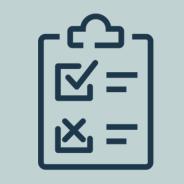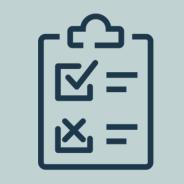COVID-19
Coronaviruses are a large family of viruses that cause respiratory infections.
Respiratory infections affect the parts of the body used in breathing: the nose, throat and lungs. The illnesses caused by coronaviruses range from the common cold to more serious illnesses, like COVID-19.
COVID-19 vaccination
People at higher risk
COVID-19 symptoms
COVID-19 treatments
Care@home
Staying well
There are lots of things that we can do in our everyday lives to help protect ourselves and others from COVID-19, the flu and other respiratory viruses. These behaviours help keep us all well and can also help limit the spread of respiratory illnesses others.
Prepare:
- be up to date with your COVID-19 vaccinations (including boosters) and annual flu vaccine.
Plan:
- If you are at high risk, make plan for access to testing and antiviral treatment with your GP or healthcare provider before you get sick.
- Get tested as soon as you have symptoms.
Protect:
- stay at home if you have any cold or flu-like symptoms and remain at home until your symptoms have resolved.
- wear a face mask if you must leave home while you still have symptoms.
- do not visit high risk settings or people at higher risk from respiratory illness for at least seven days if you have cold or flu-like symptoms or test positive to any respiratory virus.
- be alert for symptoms if you have been exposed to a person with acute respiratory illness or who tests positive for COVID-19, the flu or RSV.
- cover coughs and sneezes and keep your hands clean by washing with soap and water, or by using alcohol-based hand sanitiser.
Surveillance and reporting
RespTas Report
Weekly update - acute respiratory infection activity in Tasmania
Guidance and resources for businesses
Workplace and higher risk settings
Best practice guidelines
About coronaviruses and COVID-19
COVID-19 is an infectious disease caused by a virus called SARS-CoV-2 that can be severe, particularly for people who are not up to date with vaccination - or have conditions that increase their risk of complications.
Some coronaviruses cause illness in humans, and others cause illness in animals. Rarely coronaviruses that usually only affect animals change to infect and spread among humans.
These new coronaviruses can cause severe disease in humans.
That is what happened with SARS-CoV-2. It started as a coronavirus that infected animals but changed to infect and spread among humans. This also happened with Severe Acute Respiratory Syndrome (SARS), which emerged in 2002, and Middle East Respiratory Syndrome (MERS), which emerged in 2012.



